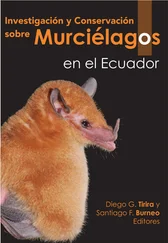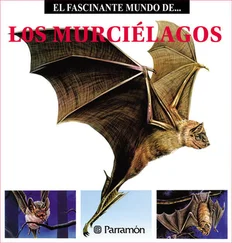Ннеди Окорафор - Lagos Noir
Здесь есть возможность читать онлайн «Ннеди Окорафор - Lagos Noir» весь текст электронной книги совершенно бесплатно (целиком полную версию без сокращений). В некоторых случаях можно слушать аудио, скачать через торрент в формате fb2 и присутствует краткое содержание. Город: New York, Год выпуска: 2018, ISBN: 2018, Издательство: Akashic Books, Жанр: Детектив, на английском языке. Описание произведения, (предисловие) а так же отзывы посетителей доступны на портале библиотеки ЛибКат.
- Название:Lagos Noir
- Автор:
- Издательство:Akashic Books
- Жанр:
- Год:2018
- Город:New York
- ISBN:978-1-61775-523-1
- Рейтинг книги:4 / 5. Голосов: 1
-
Избранное:Добавить в избранное
- Отзывы:
-
Ваша оценка:
- 80
- 1
- 2
- 3
- 4
- 5
Lagos Noir: краткое содержание, описание и аннотация
Предлагаем к чтению аннотацию, описание, краткое содержание или предисловие (зависит от того, что написал сам автор книги «Lagos Noir»). Если вы не нашли необходимую информацию о книге — напишите в комментариях, мы постараемся отыскать её.
Lagos Noir — читать онлайн бесплатно полную книгу (весь текст) целиком
Ниже представлен текст книги, разбитый по страницам. Система сохранения места последней прочитанной страницы, позволяет с удобством читать онлайн бесплатно книгу «Lagos Noir», без необходимости каждый раз заново искать на чём Вы остановились. Поставьте закладку, и сможете в любой момент перейти на страницу, на которой закончили чтение.
Интервал:
Закладка:
2
Sometime during the fifteenth year of the twenty-first century, an outbreak of Lassa fever struck terror in the imaginations of the human population of Lagos, causing them to declare war on the rats. For months every corner of the city was shaken by desperate battles that pitted neighbor against neighbor and left the streets littered with tire-squashed carcasses. But even before this conflict slipped the pin from the grenade of the Lagosians’ pent-up frustrations, their treatment of rodents already resounded for its cruelty. Anyone can empathize with humanity’s primal urge to hunt for thrills, to slaughter off entire populations and wear their skins as fashion fads, to collect their ears for charms and their teeth for potions and mount their heads on walls as trophies. Everyone knows we need guinea pigs for research, lab rats to inject and dissect for medical tests, military experiments, psychological studies, the endless pursuit of knowledge; and everyone knows we need to breed hairless cats to show off at cocktail parties and brachycephalic lapdogs to carry around in handbags because — same as zoos, safari parks, aquariums, and bullfight pits, a.k.a. animal prisons and killing grounds — these cheer us up.
Yet no one in Lagos knows why it became acceptable for rat-poison hawkers to hang dead rats from strings and strut through the crowded streets blowing their whistles as they swung these lurid advertisements in people’s faces. Perhaps the answer to this vulgarity, the impetus for such strident displays of human nastiness, lies in the creeping suspicion that we’ve already seen defeat in a war whose sideline battles we are still fighting. For anyone can see that Lagos is a city of rats — they far outnumber the twenty million human inhabitants. They live in our homes, feed better than we do on our waste, and adapt more quickly to the poisons and anthropogenic microbes wiping us off the earth. Even today no map of Lagos would be complete without a rat’s-eye view of the garbage landfills and trash-choked canals, the mechanic workshops bursting with metallic skeletons dusted in rust, the polluted subsoil devoid of plant root networks, the crumbling foundations of concrete constructions, the underground labyrinth of household septic tanks leaking sludge into the groundwater. The rotting underbelly of the city we built for the rats.
3
The man worked as a store manager and mattress salesman at a Vitafoam depot in Surulere, which was where he’d lived before moving to Egbeda. For 693 days he had shared a small apartment — two connected rooms, a kitchen, and an outbuilding bathroom — with three men, each of them contributing N180,000 to make up the one-time payment of two years’ rent. His relationship with these other men, which was cordial during the courtship and honeymoon of their ménage à quatre, deteriorated into a mismatched tug-of-war. All three pulled on one side toward domestic insouciance and soiled dishes in the kitchen sink, while he spent too much time picking, sweeping, and washing up after them. When their avowals of gratitude changed to constant banter about his WALL-E status versus their pigpen nature, he realized the living arrangement wouldn’t work for his peace of mind.
Housing in Surulere was too pricey for him to go it alone, so he ignored his discomfort and endured the others’ untidiness until the rampaging mice began to bear litters in his clothes. Before that final affront he had continued ducking the flying cockroaches in the mildewed bathroom and squishing centipedes among the streamers of wet tissue paper littered around the toilet bowl; he had ignored the eternal armies of stinging ants foraging across the greasy kitchen floor, and endured zinging houseflies in daylight hours, singing mosquitoes at night; and though he couldn’t ignore it, he had endured the pheromone stench of rat piss from the ceiling where they scrabbled and squeaked through the night. But after that workday morning when newborn mice — blind and pink-skinned, their open mouths suckling air — tumbled out of his folded trousers, he decided he had endured too much.
4
Many years before, when the man was still a boy, he’d visited for three weeks with his late mother’s older sister in a rat-haunted house beside a canal in Surulere. That was his first trip away from home, his first sighting of apples outside the pages of school primers — he bought two from the rowdy hawkers thronging the tollgate into Lagos, and stashed one inside his rucksack before crunching into the other — and the last time he grew attached to an animal.
His aunt was a nurse at the hospital on Randle Avenue, and she got a cat around the time of her nephew’s visit so he wouldn’t be home alone when she worked nights. It was a brown-and-white tabby kitten whose thin haunches and ragged coat made it look underfed. In the first days after the boy’s arrival — before his aunt’s habitual absence induced him and the cat to become partners in surrogacy who sought each other out for play, toilet training, and feeding duty — it meowed almost nonstop at night for no apparent reason until the boy became convinced it also missed its mother. He discovered many things about his feline chum during those weeks of their deepening dependency: the switchblade claws that talked back via scratches on his skin; the interior monologue of purrs drumming its chest under his stroking hand; the coupled twitching of its radar ears and periscope tail in response to his copycat meowing; the sandpaper tongue that tickled his food-stained fingers. He also cracked the riddle of the cat’s crying at night, which it did for the same reason he had a hard time sleeping: because of the hordes of rats that ghosted about the house after the lights were dimmed. They poured in from the trash-heaped banks of the canal with as much ease as the fetid vapors rising from its blackish waters. Their presence wasn’t as obvious at sundown or as bold in daytime, but they still left their traces, same as the headache the boy got from the relentless stench on the first morning he awoke in that house to find a gnawed hole in his rucksack and his second apple missing. As a protection against rat attack, but also spurred by loneliness and his pity for the frightened mewling, the boy began bringing the cat into his bed at night. His aunt noticed soon enough how well he slept with the kitten curled up beside him; she got into the habit of praising herself to friends for her parenting insight every time she left him at home. She would remember this detail when the boy had become a man and paid her a visit in Surulere after he’d settled in Lagos. She also remembered how she was repaid for her selflessness: how the boy bawled like a brat when it came time to travel back to his father’s house, how he kept begging despite her warnings that he control himself, how he accused her of being a bad aunty for refusing to allow him to take the cat. These forgotten memories were rekindled on the same day the man told her about his rat problem in Egbeda and that he was thinking of getting a kitten, to which the aunt replied, “No, that won’t work. The rats in Lagos are too big for kittens, and they’re smart too, they kill them before they grow.” She knew because she had lost four kittens before she learned. The rats came at night and tore out their throats, she said. “I never told you, but that’s how your friend, my first cat, the one I got when you stayed here as a child — that’s how it died.”
5
At eighty-one years old, the landlady looked and smelled like a beached whale. Flesh hung in folds of blubber from her belly and thighs, though not her arms, which were like bloated bags of adipose; and she was stooped over as if from the weight of all that fat. Her decaying odor pounced on the man as soon as she opened her door to him and the agent, and all through her rambling conversation about the terms of his tenancy — which somehow included her disjointed narratives about who she was (a true-born child of Isale Eko, daughter of the soil, and a blood sister to the royals of the land), and how much wiser than him she was because she had buried four stillborn children who, had they lived, would all be older than him — he kept fighting off her smell’s suffocating grip on his throat. Her wrinkly face was splotched by eczema, which she raised her hands to scratch as she talked, and the blue nightdress she wore was food-stained across the chest and browned with grime about the haunches. And yet her living environment wasn’t untidy. The paved ground of her fenced and gated yard was swept clean and kept free of cracks. The building itself — a seventies oil boom — style house with identical large apartments on two floors and a smaller upstairs apartment at the rear — was in good repair for its age. The paint job looked recent, the windowpanes were all intact, the cube-shaped cavities left in the walls by the air conditioners of previous tenants had been plastered over, and the arrangement of the external plumbing pipes and electrical wires conveyed the sense that shoddy workmen hadn’t gone unsupervised. The man admired the sturdiness of the building, he appreciated the clean surroundings, and after the agent collected the key to the vacant rear apartment from the landlady and led him there, he decided he wanted it. He had seen many shapes and sizes — and prices too — in all the months of house searching across the choked heart of Lagos, but this was the first place he saw that ticked all his boxes. Indoor bathroom, running water, detached compound, wide windows, and cross-ventilation, plus the bonus of a top-floor view, all his for just under N50,000 more than his budget.
Читать дальшеИнтервал:
Закладка:
Похожие книги на «Lagos Noir»
Представляем Вашему вниманию похожие книги на «Lagos Noir» списком для выбора. Мы отобрали схожую по названию и смыслу литературу в надежде предоставить читателям больше вариантов отыскать новые, интересные, ещё непрочитанные произведения.
Обсуждение, отзывы о книге «Lagos Noir» и просто собственные мнения читателей. Оставьте ваши комментарии, напишите, что Вы думаете о произведении, его смысле или главных героях. Укажите что конкретно понравилось, а что нет, и почему Вы так считаете.




![Ннеди Окорафор - Бинти [litres]](/books/399229/nnedi-okorafor-binti-litres-thumb.webp)
![Ннеди Окорафор - Кто боится смерти [litres]](/books/401080/nnedi-okorafor-kto-boitsya-smerti-litres-thumb.webp)






